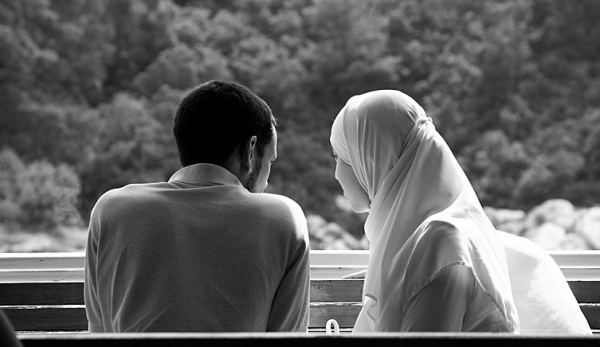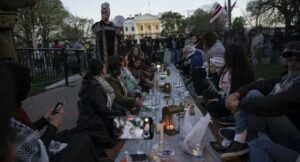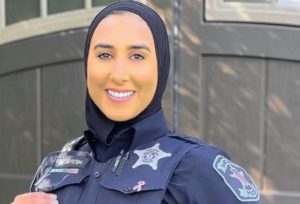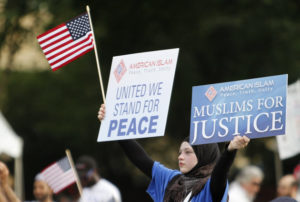 Why is it so hard to get married?
Why is it so hard to get married?
by Imam Khalid Latif
It seems like every time I open my email, I have a new message from someone unique saying that they are having a hard time finding someone to spend the rest of their life with. Different reasons seem to be holding each one down respectively, but the end result of sadness and confusion is usually the same.
How does one go about finding someone to get married to in the American Muslim community? When dating in most senses of the word is not religiously permissible, interaction across genders is difficult and awkward because of cultural norms, parents and children are not on the same page in terms of what a suitable match would be, and gender roles become blurred due to an obvious dichotomy in the way young men are raised in comparison to their female counterparts, it’s hard to find someone that makes sense for you. You run into too many Mr. and Miss Wrongs and slowly begin to think that you will never find the Mr. or Miss Right.
Religiously speaking, there isn’t a prescribed method for finding a spouse in our tradition. We find a variety of ways in our tradition that people utilized when getting married as well as different types of couples. Younger men marrying older women, intercultural marriages, arranged marriages and love marriages, marriages in which the woman proposed to the man, and many more.
Also Read: Imaam Yakhsyallah: Nurture Love for the Prophet, One Will Be with Whom One Loves
What this shows us is not that these ways are the only ways to do it, but there are many ways and no set, defined way to go about it. Permissibility does not equate to normativity — meaning just because it’s allowed to be done in a certain way, doesn’t mean that’s the only way of doing it. In general, this is something that needs to be understood because too many of us give advice based off of our own subjective experiences and understandings, and don’t really think about the reality that the other person is coming from.
I participated on a panel on marriage at a conference hosted by university-aged Muslim students. One of my co-panelists stated quite matter-of-factly that parents always know what’s best for children and when it comes time to get married, one should fully rely on their families to help them find someone. Afterwards a young girl came up to me quite concerned, stating that not only is her family not Muslim, but they don’t even like Islam. So how can that be the way for her to get married?
So how can that be the way that she finds someone for herself? The reality is it can’t be and Islam teaches us to deal with reality. But like most issues in the Muslim community, we’re not looking at the reality of the situation, rather we are stuck in a black and white understanding that isn’t helpful in finding relevant and authentic solutions to problems. And like most lectures that are given at our conferences, the subjective perspective of the speaker doesn’t take into consideration the diverse realities that are present in the room.
The one thing that is clearly impermissible is marriages that are forced. Forced marriages are completely not allowed in Islam but unfortunately run rampant in many Muslim communities. The focus becomes only on getting your child married, rather than on whether the marriage makes sense in terms of communication and compatibility. You aren’t doing your part as a parent if you force your child into a marriage.
Also Read: Thanksgiving: An Islamic Perspective
It’s haraam and there is no other way of looking at it. Ruqaiyyah Waris Maqsood, a female convert to Islam and author, writes about the case of Qaylah bint Makhramah and her daughters who were potential victims of a forced marriage during the time of the Prophet Muhammed, peace be upon him, in her essay entitled “Forced Marriages Condemned”:
“I will close by quoting the case of Qaylah, which is perfectly clear on the points I have raised. Qaylah bint Makhramah had several daughters. When her husband died, her husband’s brother Athub b. Ashar seized them, intending to arrange their marriages to the persons of his choice. None of the girls wanted these particular marriages. Qaylah managed to rescue and hide one of the girls, Hudaybah, and set off with her to find the Prophet, peace be upon him. Hudaybah was rolled up in a woolen blanket.
They got away, but were so terrified of Athub that when their camel suddenly refused to go on they supposed he was using sorcery against them. By the time they got moving again, they could actually see Athub in pursuit in the distance. However, they got to Madinah, where Qaylah had a sister residing, but Athub caught them before they could gain shelter in her house. A struggle ensued, in which this ‘Muslim’ man struck Qaylah with the flat of his sword and knocked her bleeding to the ground.
Then he seized the terrified girl and carried her off over his shoulder. Qaylah managed to get to her sister’s house, and in the morning was able to join the deputation of Bakr b. Wa’il of Banu Shayban that had come to see the Prophet. They arrived at the mosque at the time of fajr prayer (sunrise), and in the darkness Qaylah joined the rows of men until the man next to her realised she was a woman and directed her to the women’s rows behind them.
Also Read: Achieving the Position of Fasting Expert with Kindness of Morality
When the sun came up she got her interview with the Prophet, who passed judgment in her favor, and had his scribe write for her on a piece of red leather: ‘Qaylah and the daughters of Qaylah should not be oppressed or forced to marry. Every faithful Muslim should offer them help. Muslims should do good deeds and not evil ones.’”
As tough as it is to be alone, don’t let yourself agree to be a part of something that doesn’t make sense for you. It’s not the correct solution. So what is the correct solution then? For starters, we need to explicitly demand of leaders, experts and religious scholars in our communities to come together and develop a more a practical and authentic approach to dealing with this issue.
Not just standing by while culture wins in clashes with religion or young people lose their faith because they don’t understand why Islam makes it hard for them to find someone, when in reality it’s not Islam at all, but Muslims that are screwing things up. If I don’t know what I am “allowed” to do when trying to find someone, make it clear for me what is OK in the given context.
But do so with the aid of mental health and relationship experts who understand the cultural context and the complexities of the situation and what it is doing to people, and with their help come up with a practical solution. Solicit expert advice and opinion in the development of matrimonial services for the Muslim community that takes into consideration more than let’s charge someone tons of money and stick everyone in a room where all the men chase after the prettiest girl and people leave feeling more dejected than when they walked in.
Also Read: The Power of Charity in Ramadan
The intention shouldn’t be to make a business out of someone else’s life issue, but to help people find meaning in their life by putting their needs first. And in those instances where intentions are good, you still need to know what you are doing. If you don’t have the skill-set or credentials to build this type of service, bring someone in who does, even if they are not Muslim. There are many comparable services for other minority groups that should be analyzed and understood — why start from scratch?
There are a lot of other things that are in my mind on this topic. We need to have something that guides men through this process, as most of the rhetoric seems to revolve around women and what they need to do and change about themselves in order to be more appealing. It could be the problem isn’t with our women, but with our boys, and they need to be the ones to change. (T/P3/R01)
Mi’raj Islamic News Agency (MINA)
Sources:
Also Read: Ramadan Brings the Change
2. http://muslimvillage.com/
Also Read: Ramadan, the Month of Education



































 Mina Indonesia
Mina Indonesia Mina Arabic
Mina Arabic